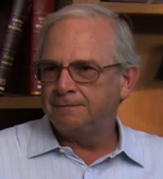
Ted Eisenberg
Henry Allen Mark Professor of Law
Cornell University Law School
Theodore Eisenberg was one of the foremost authorities on the use of empirical analysis in legal scholarship. After his graduation from University of Pennsylvania Law School, Eisenberg clerked for both the District of Columbia Circuit of the U.S. Court of Appeals, and Chief Justice Earl Warren of the U.S. Supreme Court. After three years in private practice, Professor Eisenberg began teaching at UCLA, coming to Cornell Law School in 1981, where he taught until his death in February 2014. A groundbreaking scholar in the areas of bankruptcy, civil rights, and the death penalty, Eisenberg used innovative statistical methodology to shed light on such diverse subjects as punitive damages, victim impact evidence, capital juries, bias for and against litigants, and chances of success on appeal. He was one of the founders of the Society of Empirical Legal Studies and taught training workshops on empirical legal studies around the globe.
Ted Eisenberg: Interview
Ted Eisenberg speaks with Valerie Hans on several issues:
Question 1: Reactions to critiques of the use of social science in legal cases
Question 2: What about claims of junk science in the courtroom?
Question 3: What are some of the challenges that lawyers face in expert witness preparation?
Question 4: What mistakes are lawyers prone to make when dealing with expert testimony?
Question 5: How do lawyers find experts?
Question 6: How do you prepare yourself to testify as an expert?
Question 7: Discussion of the "adversarial pull" in expert testimony under common law adversary procedure
Question 8: Discussion of Exxon-sponsored research about juries in punitive damages cases?
Question 9: Mock jury research versus the study of actual jury punitive damage awards - how can they be reconciled?
Question 10: Amicus briefs versus expert testimony - advantages and limitations
Question 11: What is the importance of the punitive compensatory ratio in damage awards?
Question 12: Use of social science in Exxon Shipping v. Baker
Question 13: Footnote 17 of Exxon Shipping v. Baker: legal reliance on sponsored research
Question 14: What are the strengths and limitations of epidemiological research?
Question 15: Uses of social science in death penalty cases
Question 16: Simmons v. South Carolina - role of social science evidence
